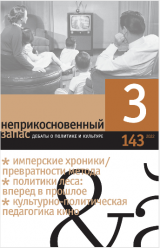
"Us" and "Them"
Post-Soviet migration in Russia and (re)making symbolic boundaries
Researchers have been too quick to accept the premise that Russia is the second largest immigration state (after the United States). An uncritical stance towards this assertion leads us to ignore the specificities of the post-Soviet context of migration processes. In this context, the phenomenon referred to as “immigration” is, to a significant degree, the same thing as geographic mobility within the bounds of the former USSR. The people that belong to the two sides of this process that are referred to as host society and immigrants were until recently part of the same political and cultural community. What we have observed in the last quarter century is the process of becoming alien, of othering those who, in the memories of generations still living today, were either entirely or partially “ours”. In other words, we are witnessing an about-face in the process of constructing and reconstructing symbolic boundaries, which affects different groups in different ways.
